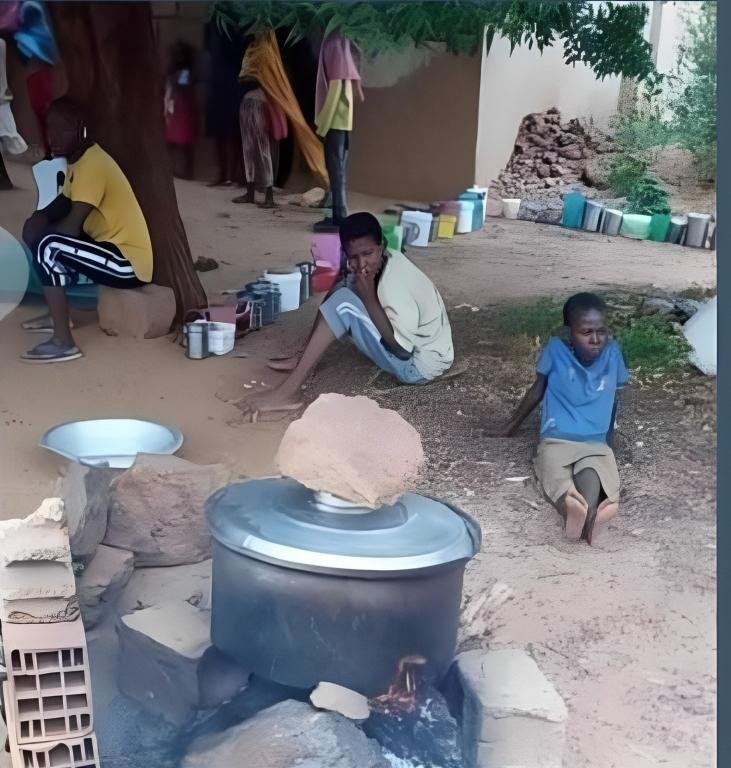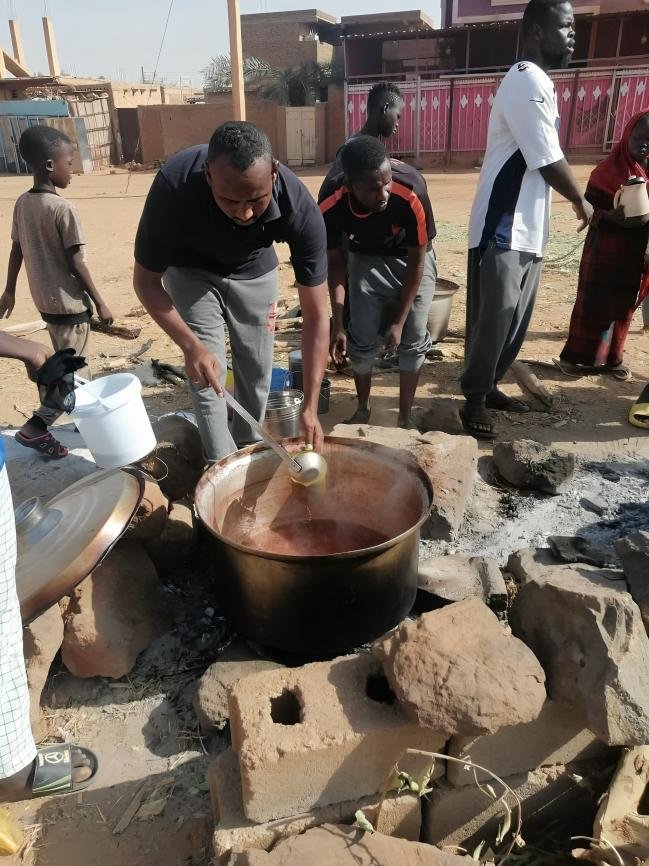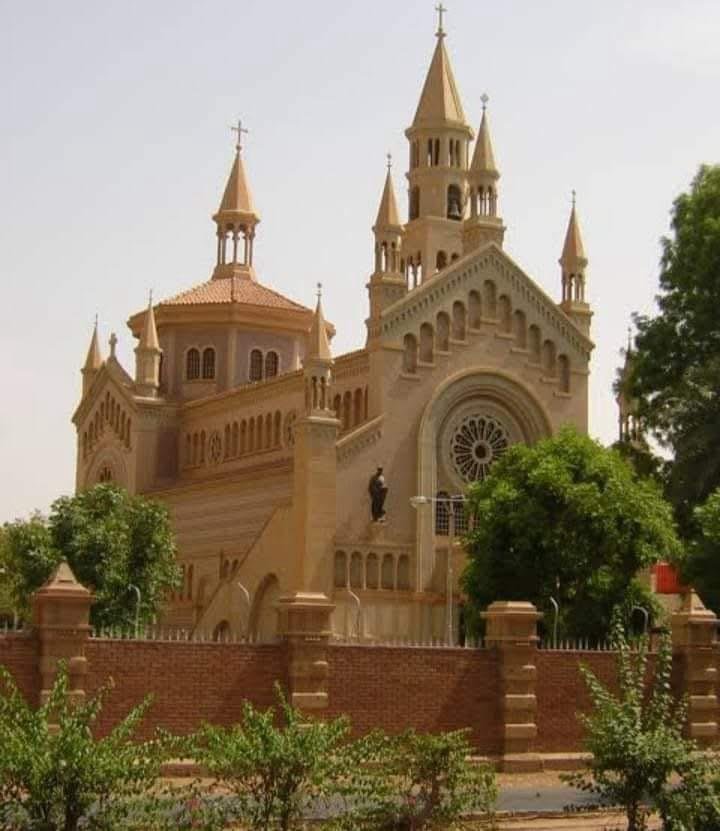SPT: Investigative Team – Sudan
Under the scorching sun and amid the crumbling stalls of a market on the outskirts of Gedaref in eastern Sudan, a barefoot 10-year-old boy stands silently selling cigarettes. He speaks only when addressed, and even then, his voice barely rises above a whisper.
“My father was killed in Dinder. We fled here,” he says. “Now I’m the one who brings food. We have no home. My mother is sick , she sleeps on the ground under the sky.”
In Sudan today, children are not watching the war from behind windows. They are living it on the front lines. They are not reading about war in history books; they are being crushed by it.
Over 14 million Sudanese children now face hunger, displacement, loss, and forced recruitment. Their childhoods have not just been stolen – an entire generation is being reshaped in the rubble.
Since war erupted in April 2023 between the Sudanese Armed Forces and the paramilitary Rapid Support Forces (RSF), the United Nations estimates that over 15 million people have been displaced or forced to flee.
A recent study by U.S. universities estimates the death toll at approximately 130.000.
Death by Artillery
In late June, Al-Mujlad Hospital in West Kordofan – located near an active front line was struck by artillery fire, killing more than 40 people, including nine children.
The RSF blamed the Sudanese army for the strike. Their accusation was supported by two prominent civil society organizations: the Sudan Doctors Network and Emergency Lawyers, both of which have been documenting atrocities since the war began.
The Sudanese military has yet to comment on the hospital bombing.
Schools Closed, Dreams Destroyed
Since April 2023, nearly 10,000 schools have been closed across Sudan. Many have been repurposed as military outposts or abandoned entirely.
Playgrounds have turned into battlegrounds, and classrooms are now filled with dust and dread.
UNICEF estimates that more than 17 million Sudanese children are out of school, and many may never return.
In displacement camps across eastern Sudan, thousands of school-age children roam the streets, sleep on mats without blankets, share dry bread, and queue for hours just to get water.
Some have stopped speaking entirely , having seen a father killed, a sister abducted, or their home obliterated.
An aid worker at a shelter in White Nile State says:
“They arrive emaciated, terrified, sometimes completely silent. Many no longer respond to basic conversation. Others wake up screaming at night. These are children in body only. Inside, they are old, frightened men.”
Forced Recruitment in the Name of Protection
In the states of River Nile, Northern Sudan, and parts of Darfur and Omdurman, open-source reports and eyewitness accounts suggest that armed groups and government-aligned militias are actively recruiting children.
Some are lured with promises of food, safety, or a sense of “manhood.” In other cases, they are forcibly armed or assigned roles as messengers or guards at destroyed checkpoints.
A human rights activist from the River Nile region reports:
“We see boys younger than 13 in military uniforms carrying rifles too big for their hands. Many don’t even understand what they’re being trained for, or who they’re expected to fight.”
In displacement zones, families fear sending children to fetch water or firewood , terrified they’ll be abducted for recruitment or killed by stray bullets.
Recently circulated videos show young boys undergoing military training in makeshift, unofficial camps.
Starvation and Malnutrition

According to the United Nations, more than 4 million Sudanese children are suffering from acute malnutrition. About 700,000 of them are at imminent risk of death without urgent medical intervention.
In Khartoum’s battered neighborhoods particularly in Omdurman children line up alone outside food distribution centers, holding small containers and waiting for a handful of lentils or sorghum in a meager dish called balila.
No bread. No rice. No vegetables. Just silence , and the gnawing ache of hunger.
Many of these children stand in line without a parent by their side. No mothers. No fathers. Only waiting.
A Generation Scarred Before It Begins
This generation has never known play, school, or safety.
They are growing up carrying the physical and psychological scars of a war they did not start. The trauma, the hunger, and the endless displacement are forging a ticking time bomb in Sudan’s social fabric.
A psychologist working with an international NGO in Port Sudan explains:
“This is not just a humanitarian emergency. It is a crime against the future. Without immediate action, we’ll have a generation that has lost trust, lost compassion , maybe even lost its sense of self.”
Rape of Children: Among the War’s Most Horrific Crimes
Among the most horrifying reports emerging from the war are those of armed men raping children.
In one shocking case, a two-year-old girl was sexually assaulted in Omdurman.
In Al-Obeid, North Kordofan, a man in his sixties reportedly committed suicide after being unable to protect his 11-year-old daughter from being raped by fighters affiliated with a Darfuri militia.
Local residents have accused fighters from Darfuri armed groups , which fight alongside the Sudanese army , of entering homes, committing sexual assaults, stealing property, and killing anyone who resists.
Due to the widespread fear and chaos, these allegations remain difficult to verify independently.
Aid Blocked, Markets Flooded
In Port Sudan, where the army controls the de facto government, the humanitarian crisis is largely ignored. Officials speak of politics and military strategy- not of famine, disease, or the children living in squalor.
An aid worker told us:
“Humanitarian supplies entering through Port Sudan rarely reach those in need. The army redirects them to soldiers and allied Darfuri militias. Much of the aid is sold in open markets, with packaging that still reads: ‘Not for Sale , Humanitarian Relief.’”
A child protection activist in Gedaref working with UNICEF says:
“Children are bearing the full weight of this war. When it ends, Sudanese society will face truths it was not ready for, that this has been, from the very start, a war on childhood.”
Is Anyone Listening?
As the world turns its attention to other crises, Sudan’s children are being forgotten.
No emergency summits. No major relief mobilizations. No safe corridors for evacuation or care.
Their fate hangs in a long silence, as though their lives never mattered.
An entire generation is being buried alive – not in cemeteries, but in a shattered national memory.




